Farewell newsletter, August 2024
28 August 2024
Director’s message
At the end of a decade-long focus on mission-led research, it is time to reflect on the defining features of this approach and the extent to which it has facilitated progress.
I am confident that Healthier Lives’ focus on achieving health equity and the relationships formed between research groups, communities, healthcare providers and policymakers will endure, as will the model of genuine partnership entailed in co-designing research.
“Researchers around the world talk about equity but you are really trying to do something about it.”
Professor Shiriki Kumanyika, Chair, Healthier Lives International Science Advisory Panel
In terms of progress, Healthier Lives research has contributed evidence, technology and tools that can help to achieve more equitable health outcomes in Aotearoa New Zealand. We recently published Healthier Lives for All New Zealanders, an account of what Healthier Lives set out to do and the achievements of our research teams and kaupapa partners.
During the last nine years there has been substantial collaboration between the three health-related National Science Challenges (NSCs). Healthier Lives also participated in collaborative research with Our Land and Water, and worked closely with seven NSCs to jointly call for a science-informed national food strategy.
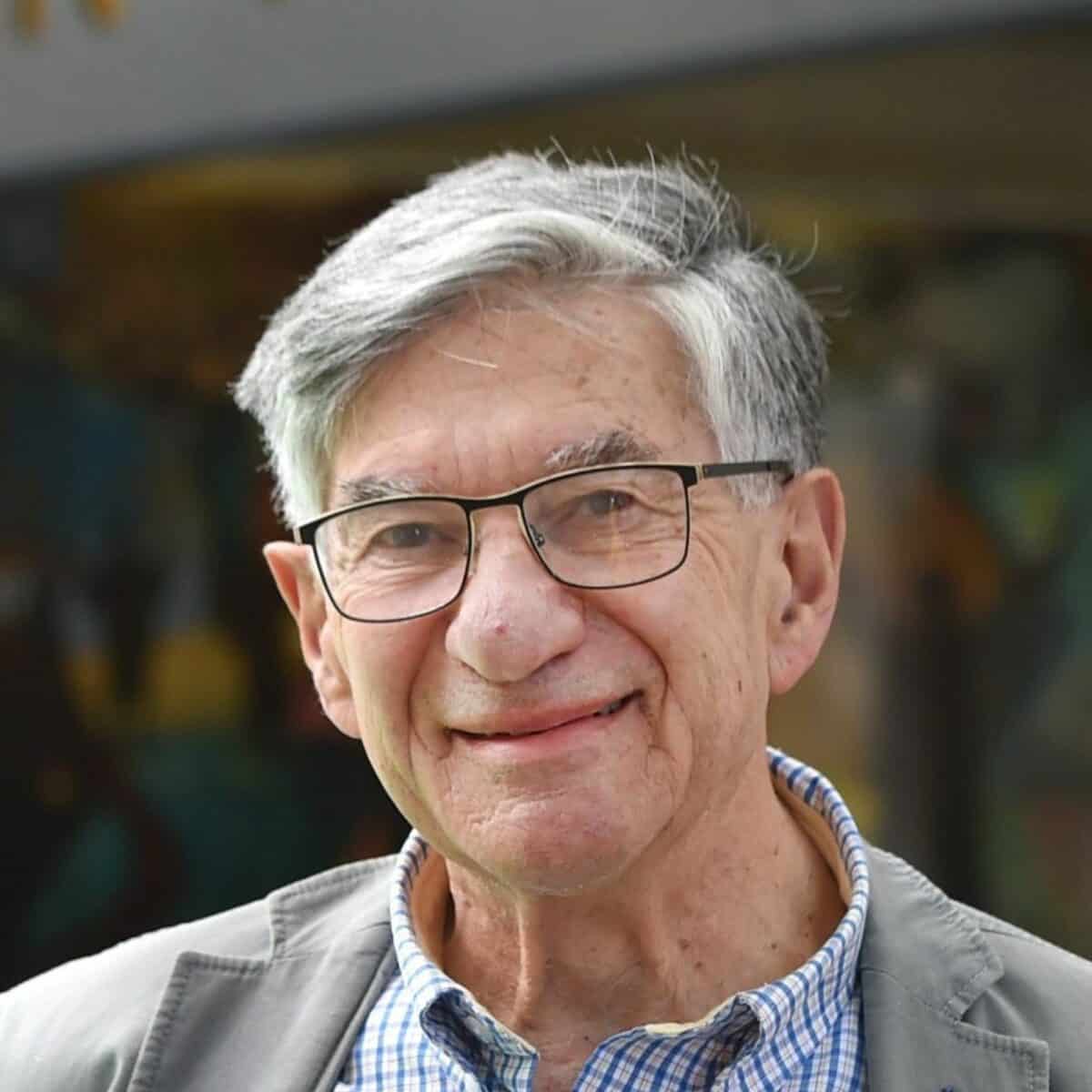
While Healthier Lives as an entity comes to an end, the impact of the work funded by our Challenge will only grow. However, adequate funding and policy implementation by central government will be needed to realise its full potential.
Current rates of cardiovascular disease, cancer, diabetes and obesity are already putting enormous pressure on our health services, making implementation of new research-informed solutions inevitable. To minimise the human impact and cost to our health system, we recommend doing this sooner rather than later.
Ngā manaakitanga,
Jim Mann
Podcasts highlight potential of new cancer technology
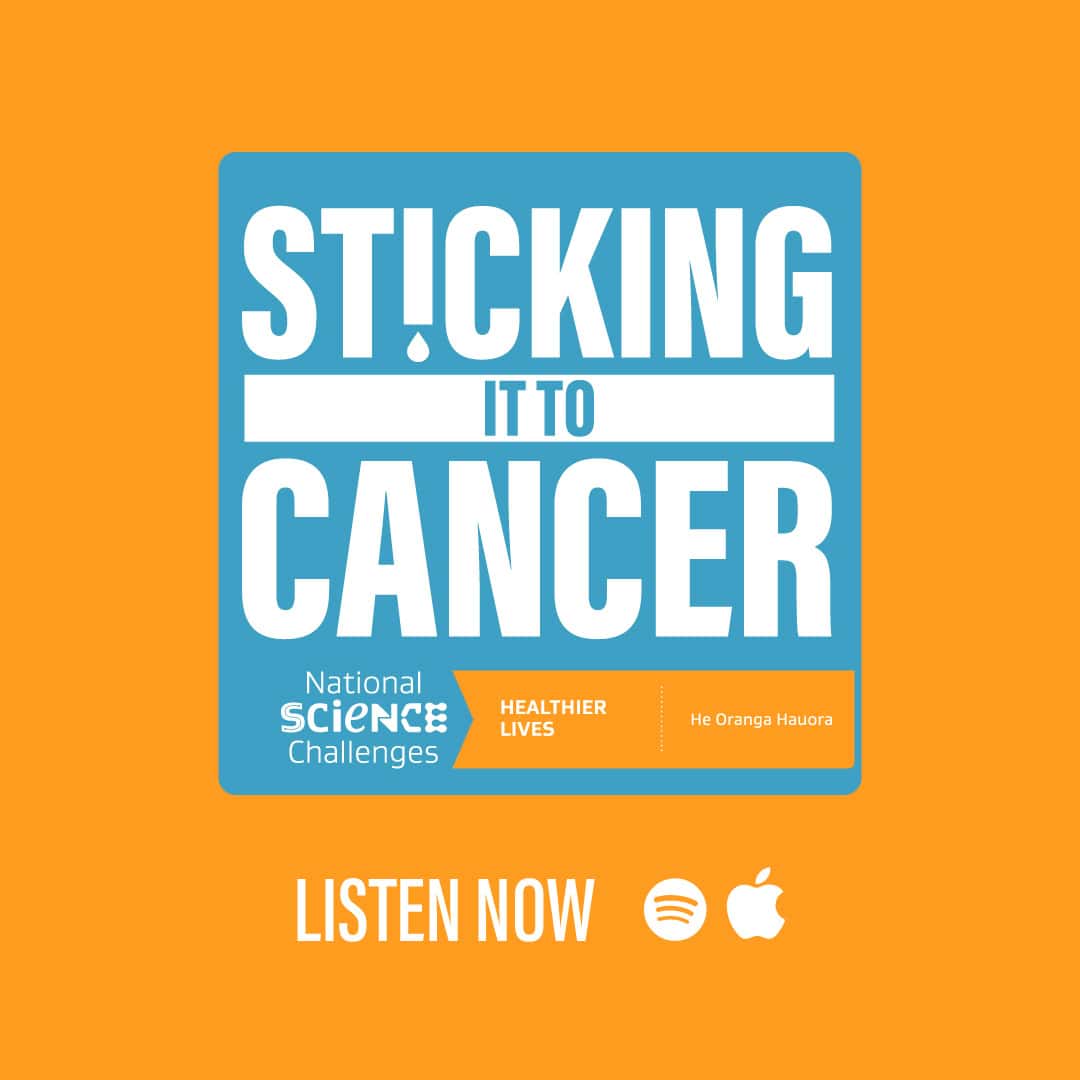
A new podcast series hosted by TVNZ’s Jenny-May Clarkson explores the potential of circulating tumour DNA (ctDNA) for detecting cancer and optimising its treatment in Aotearoa New Zealand.
The podcasts feature researchers Parry Guilford, Cris Print, Jordon Lima and Sandra Fitzgerald talking about their Healthier Lives research to refine ctDNA technology with a view to integrating it into clinical cancer care.
In these informative conversations, the researchers explain what precision medicine and ctDNA are, and how they could be used to improve cancer diagnosis and treatment, especially for rural communities.
Read more about this story:
https://healthierlives.co.nz/revolutionising-cancer-care-in-aotearoa/
Listen on Spotify:
https://open.spotify.com/show/1UYbdJo3Gd6g5msRUe0mID?si=e92c012f8f594e3c&nd=1&dlsi=d55cf004ede74cc7
Listen on Apple:
https://podcasts.apple.com/nz/podcast/sticking-it-to-cancer/id1762958433
Illustrations bring dietary modelling results to life
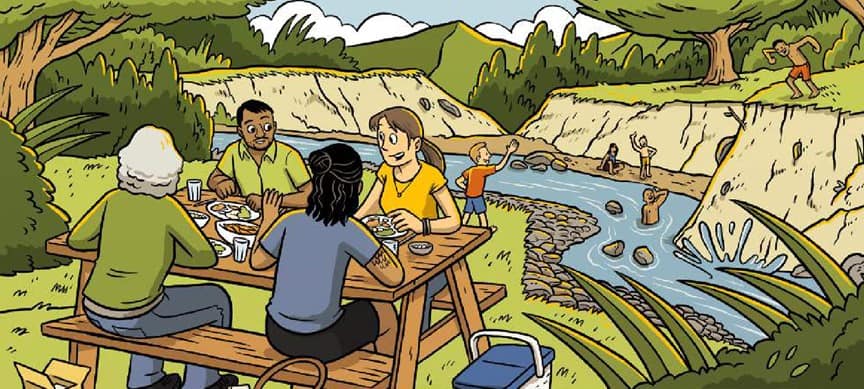
A collaboration between writer and illustrator Toby Morris and Sustainable New Zealand Kai lead researcher Cristina Cleghorn has led to a series of illustrations explaining the projected effects of population-wide dietary change.
Modelling the effects of changes in our diet has revealed that introducing policies to encourage changes in what New Zealanders eat would result in better health outomes, increased health equity, cost savings, and reductions in greenhouse gas emissions.
Read more about this story:
https://healthierlives.co.nz/illustrations-bring-dietary-modelling-to-life/
Maisuka: The Silent Killer
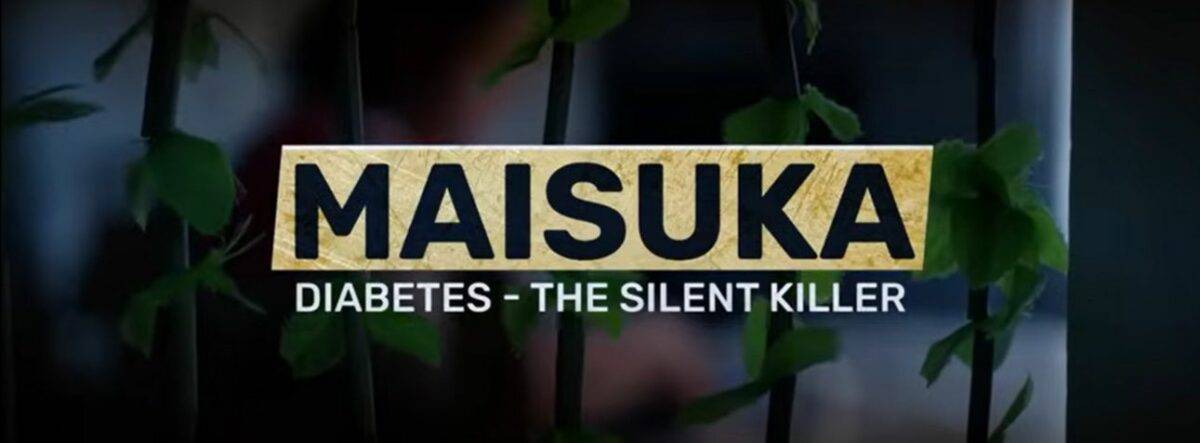
Maisuka: The Silent Killer, a powerful new film funded through public interest journalism, examines the impact of type 2 diabetes on Pacific communities in Aotearoa New Zealand.
The film features several Healthier Lives Kaupapa partners and researchers, including Tevita Funaki, CEO of The Fono, talking about the Fono’s role as the Pacific partner in The Economic and Social Cost of Type 2 Diabetes report, which Healthier Lives and others commissioned in 2020 to expose the scale and trajectory of the diabetes pandemic in this country.
Elizabeth Okiakama and Akarere Henry from the South Waikato Pacific Islands Community Services discuss the impact of the Oire Tokoroa Family Diabetes Lifestyle Programme, which changed the lives and health trajectory of participants.
Documentary link on TP+
https://tpplus.co.nz/health-lifestyle/maisuka-the-silent-killer-full-documentary/
Scoop article:
https://www.scoop.co.nz/stories/CU2407/S00451/maisuka-the-silent-killer.htm
Supporting young Māori data scientists
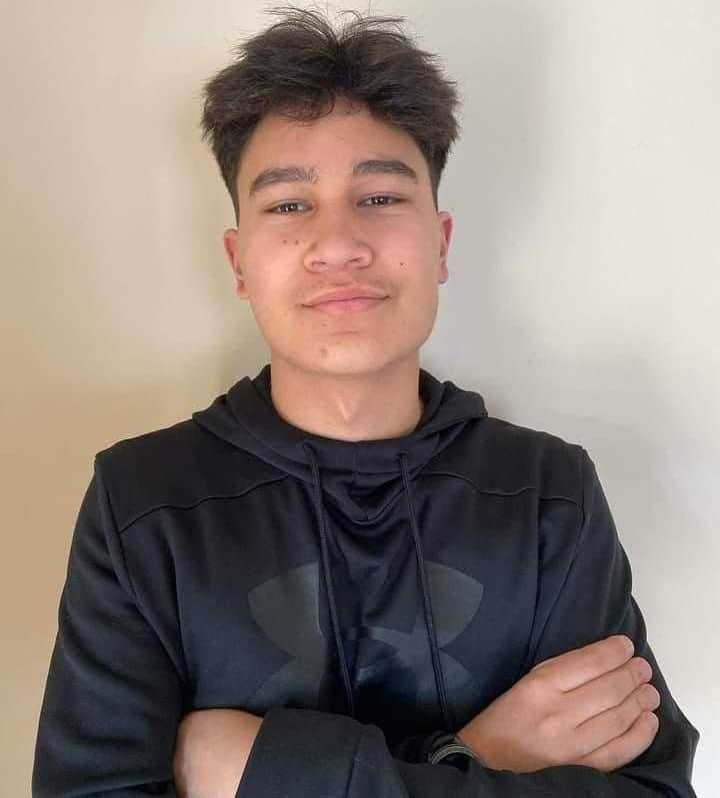
Healthier Lives and the Pūhoro STEMM Academy have teamed up to award scholarships to four Māori data science students with potential to become future research leaders.
As well as supporting the development of talented tauira Māori who are contributing to their communities in significant ways, the scholarships are intended to raise awareness of the importance of Indigenous data sovereignty in health disciplines and develop future workforce capacity in this important area.
The four scholarship recipients are Chance Dehar (pictured), Savannah Galvin, Eric Marshall and Ashlee Thompson. We wish them all the best in their studies!
Implementing research evidence equitably
Several Healthier Lives projects leave a legacy to support the implementation of evidence across different parts of our health system.
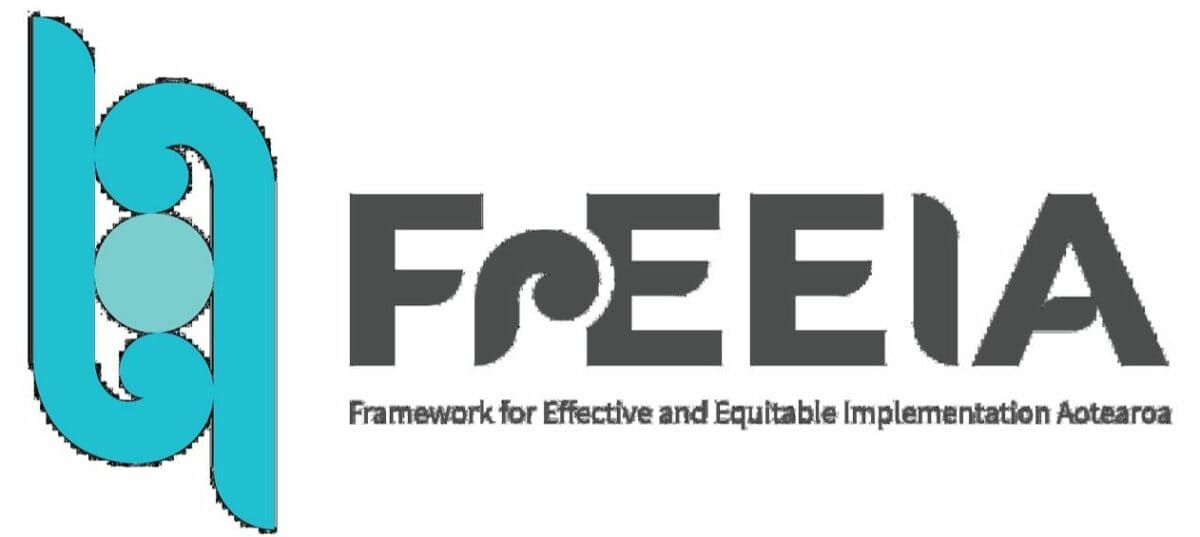
The Implementing Equitable Health Interventions project developed the Framework for Effective and Equitable Implementation in Aotearoa (FrEEIA), and the FrEEIA readiness assessment tool, for use by mainstream health services when planning a health intervention.
These tools will shortly be available on a new website – Implementation Science Aotearoa. If you are involved in health service planning, keep an eye out for this website and future workshops to promote the uptake of Implementation Science in Aotearoa New Zealand.
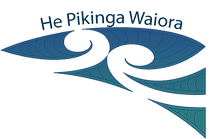
The He Pikinga Waiora Implementation Framework and resource toolkit, developed in the first phase of Healthier Lives, remains a practical guide for Indigenous communities to develop, implement and evaluate health interventions.
Visit the He Pikinga Waiora implementation framework and resource toolkit website:
https://www.hpwcommunity.com/
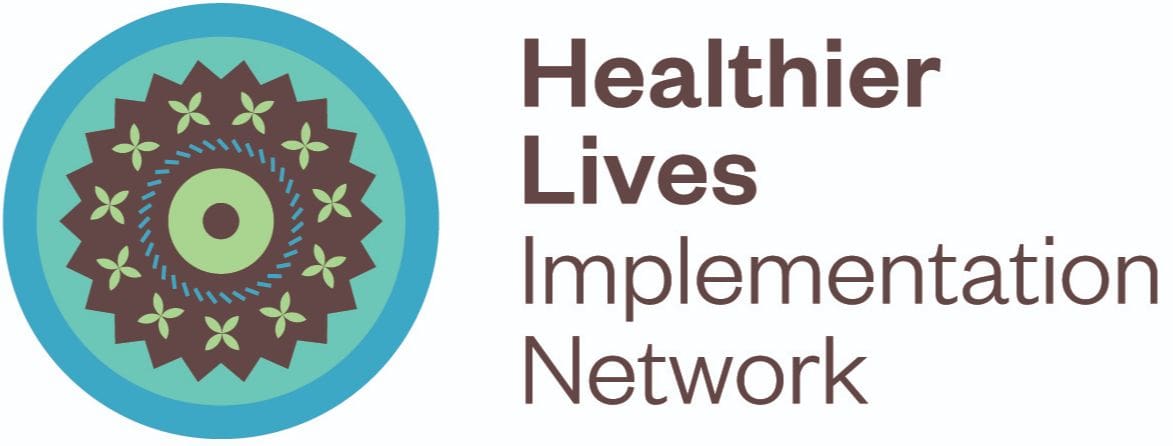
The Healthier Lives Implementation Network recently funded four Māori and Pacific health providers to adapt and pilot evidence-based health programmes. The stories of these pilot programmes offer a window into the daily work of Māori and Pacific providers to meet their communities’ aspirations for greater health and wellbeing.
Read the stories: https://www.healthierlivesimplementationnetwork.co.nz/implementation-pilots.html
FUNDING NEEDED: The Healthier Lives Implementation Network is a uniquely valuable resource for Aotearoa New Zealand, but a new source of funding is needed. The Network’s funding is modest and the value it offers is huge. An investment in the Network is an investment in the prevention of non-communicable diseases.
If you can help, please contact Professor John Oetzel at
Te Tiriti O Waitangi partnerships
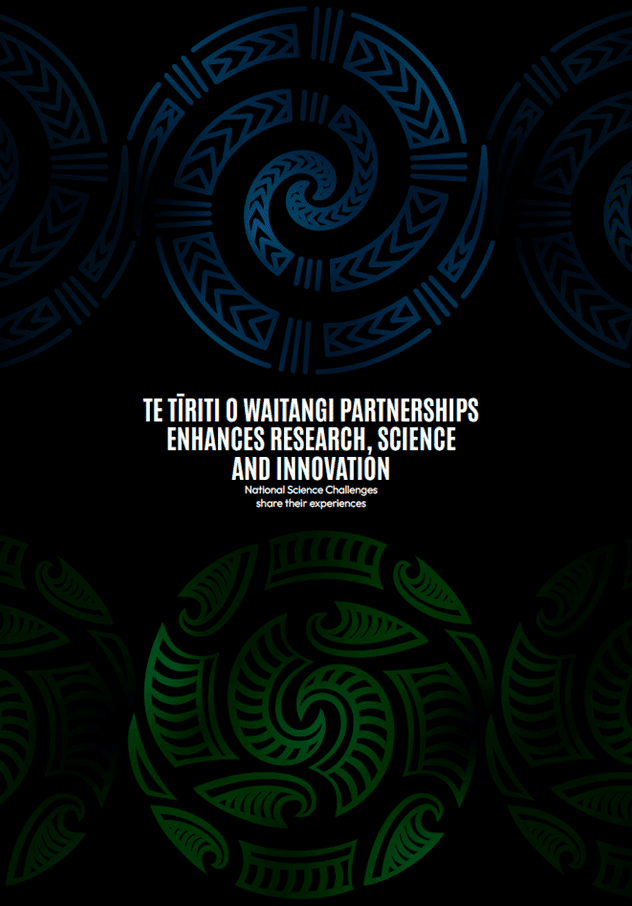
Over the past ten years Tiriti-honouring practice has been developed in diverse fields of research across all National Science Challenges (NSCs). A new book by Jo-Anne Hazel & Peta-Maria Tunui, Te Tiriti O Waitangi Partnerships Enhances Research Science and Innovation, concludes that “a research and science sector which honours Te Tiriti is an exciting prospect for New Zealanders”.
Read about Healthier Lives and other NSC’s experiences in Te Tiriti O Waitangi Partnerships Enhances Research Science and Innovation: https://healthierlives.co.nz/wp-content/uploads/Te-Tiriti-o-Waitangi-NSC-report.pdf
Research Finding Briefs for Healthier Lives projects
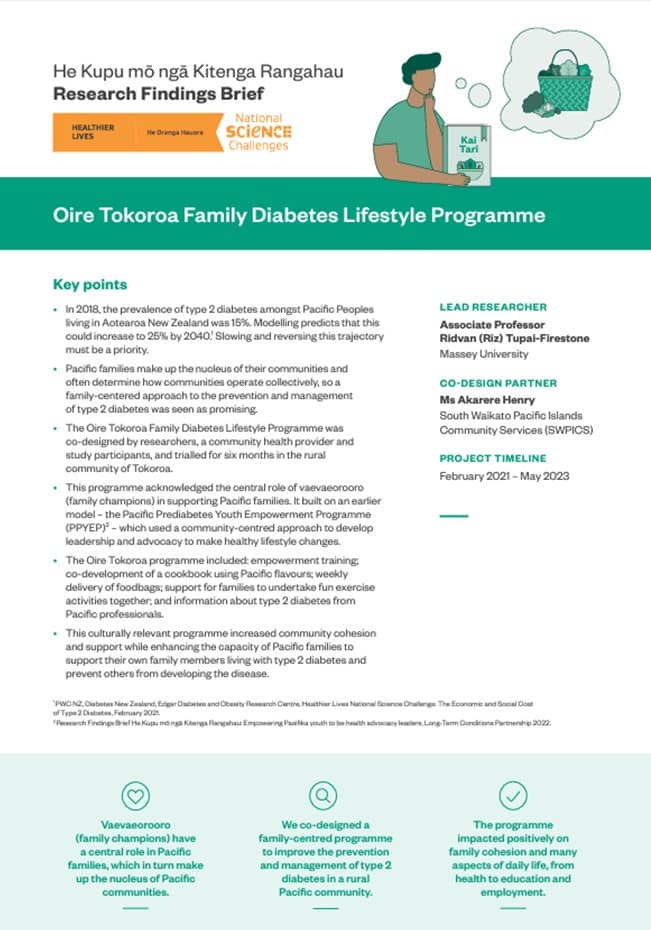
Two new Research Finding Briefs (RFBs) summarise key findings from Healthier Lives-funded diabetes research.
The Oire Tokoroa Family Lifestyle Programme RFB describes a family-centred approach to preventing type 2 diabetes in one rural Pacific community, which is already being adapted for use in other Pacific communities.
The Te Kaika DiRECT RFB outlines the first New Zealand trial of the Diabetes Remission Clinical Trial (DiRECT) programme, using rapid weight loss and behavioural support to treat people living with prediabetes or type 2 diabetes.
Healthier Lives RFBs are available online:
https://healthierlives.co.nz/resources/findings-briefs/
Māori and universal design
The aim of ‘universal design’ principles is to make sure that our built environment can be accessed by people of all abilities and life stages.
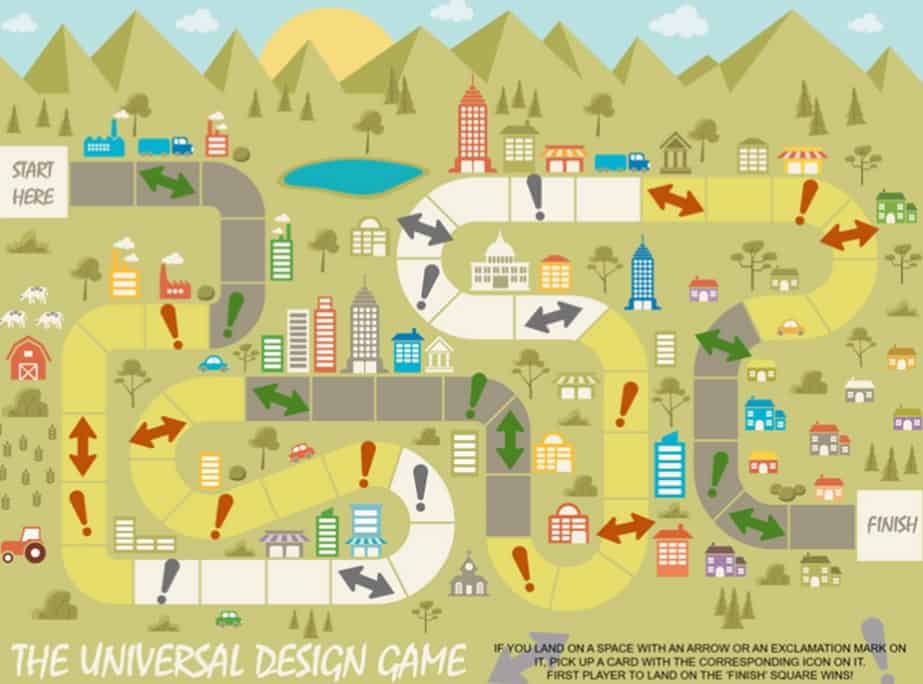
Dr James Berghan (Victoria University of Wellington) led a strand of the ACTIVATION project* exploring universal design principles through ‘he ara mauri ora’, a participatory research project that co-designed an all-abilities pathway, a whare toi (arts studio), and a respite kāinga (village) alongside a recently restored wetlands area. Decolonisation and cultural identity were important elements in the design, alongside physical and sensory access.
The project led to the creation of The Universal Design Game, a board game to educate university students, designers and policymakers about the access needs of disabled people (both Indigenous and non-Indigenous) in the built environment.
Visit the Universal Design Game website to download a game pack:
https://urbandigenous.com/projects/universal-design-game
*ACTIVATION was co-funded by Healthier Lives and Ageing Well
Celebrating University of Otago-hosted NSCs
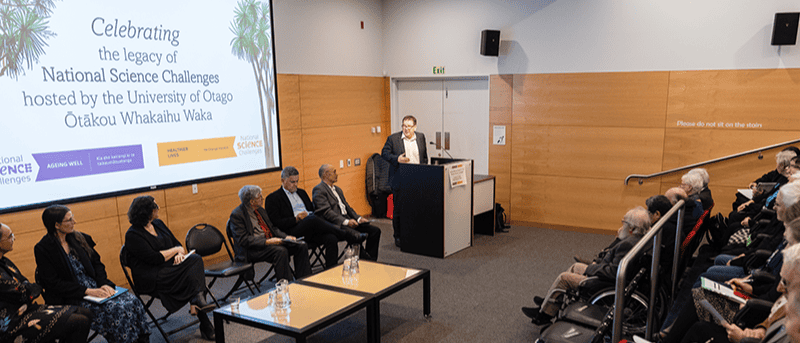
Two of the three health-related National Science Challenges were hosted by the University of Otago. At an evening event held on Wednesday 14 August, the University acknowleged the work of Healthier Lives and Ageing Well.
University of Otago Vice-Chancellor Grant Robertson joined the Chairs and Directors of both Challenges in thanking all those involved in these extensive research programmes and highlighting some of their key outcomes.
Listen to a recording of this event: https://www.youtube.com/watch?v=47ZJh2N_Kac
Read more about the University of Otago-led Challenges:
https://www.otago.ac.nz/news/newsroom/leading-the-way-in-community-first-research
Archiving Healthier Lives
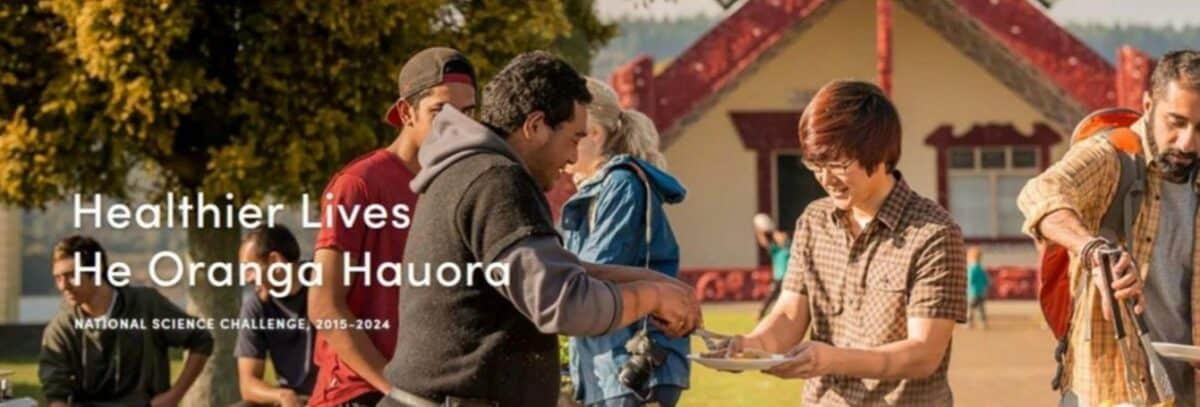
The rich resource of research materials produced during the past nine years of Healthier Lives will remain available to anyone looking for them in future. They have been archived in various places:
- The Healthier Lives website will be maintained until 2030: https://healthierlives.co.nz/
- An archived version of the website can be found at the National Library’s digital archive: https://natlib.govt.nz/records/40195094?search%5Bpath%5D=items&search%5Btext%5D=healthier+lives
- Academic publications, reports and other outputs are available in a Special Research Collection within the University of Otago OUR Archive: https://ourarchive.otago.ac.nz/esploro/search/collections/Healthier-Lives-National-Science-Challenge/healthier-lives-coll?institution=64OTAGO_INST
- A list of tools and datasets produced through Healthier Lives research are available on the Challenge website: https://healthierlives.co.nz/resources/tools-datasets/
- Recorded presentations, short films and other interactive outputs are available on the Healthier Lives YouTube account: https://www.youtube.com/channel/UCD0qceoq1hPIurHG_jesqBQ
- An overview of what Healthier Lives set out to do and what it achieved is captured in Healthier Lives for All New Zealanders: https://healthierlives.co.nz/wp-content/uploads/Healthier-Lives-for-all-New-Zealanders_Digital2.pdf
- An inventory of the research outputs of the three health-related National Science Challenges is available in Evidence for health and wellbeing in Aotearoa New Zealand: https://healthierlives.co.nz/wp-content/uploads/ABS-HL-AW-Research-Inventory_August-2024_final.pdf
- Physical copies of the major reports produced by Healthier Lives can be accessed from the University of Otago library and the National Library.
Subscribe to EDOR

Healthier Lives has worked closely with the Edgar Diabetes and Obesity Research Centre (EDOR), especially in shared areas of interest such as nutrition, obesity, diabetes and cardiovascular disease.
If you would like to get updates on the continuing work of EDOR researchers (some of whom were also Healthier Lives investigators) we invite you to sign up for the EDOR newsletter using this link: https://otago.au1.qualtrics.com/jfe/form/SV_2aZBi1utB4OO0U6
EDOR staff are happy to help with any future enquiries regarding Healthier Lives and can be contacted via email:
Recent publications
Awareness, support, and opinions of healthy food and drink policies
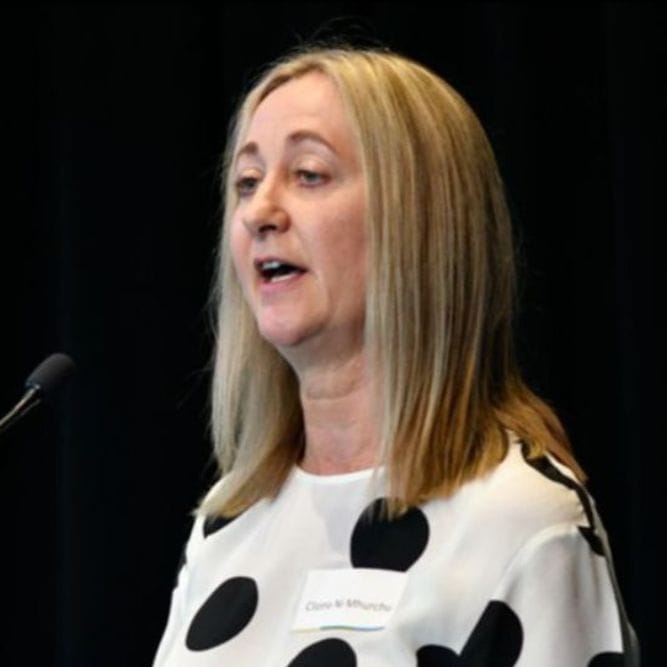
Five years after the introduction of a voluntary National Healthy Food and Drink Policy (NHFDP) in 2016, the HYPE research group, led by Professor Cliona Ni Mhurchu (University of Auckland), surveyed hospital staff and visitors about their awareness and perceptions of the food choices available in healthcare institutions across Aotearoa New Zealand.
Street redesign, active mobility and well-being for Pacific elders
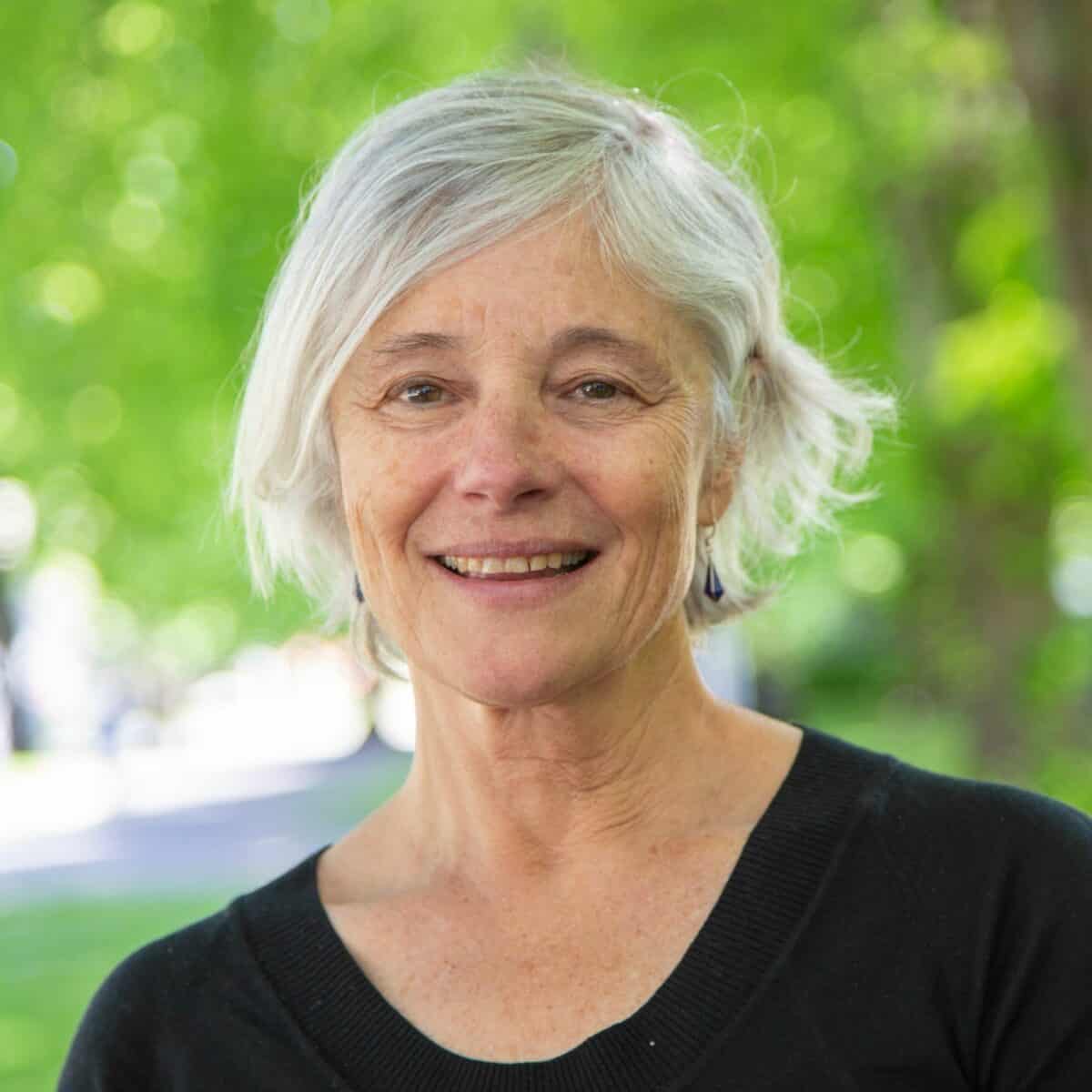
The ACTIVATION research group led by Professor Karen Witten (Massey University), examined the impact of street changes in the everyday lives of Pacific elders in Ngā Hau Māngere. Safer footpaths and crossings, new gathering spaces, safer access to key amenities, reduced speed limits and aesthetic improvements in the area contributed positively to the wellbeing of Pacific elders by increasing their mobility.
Street redesign, active mobility and well-being for Pacific elders


